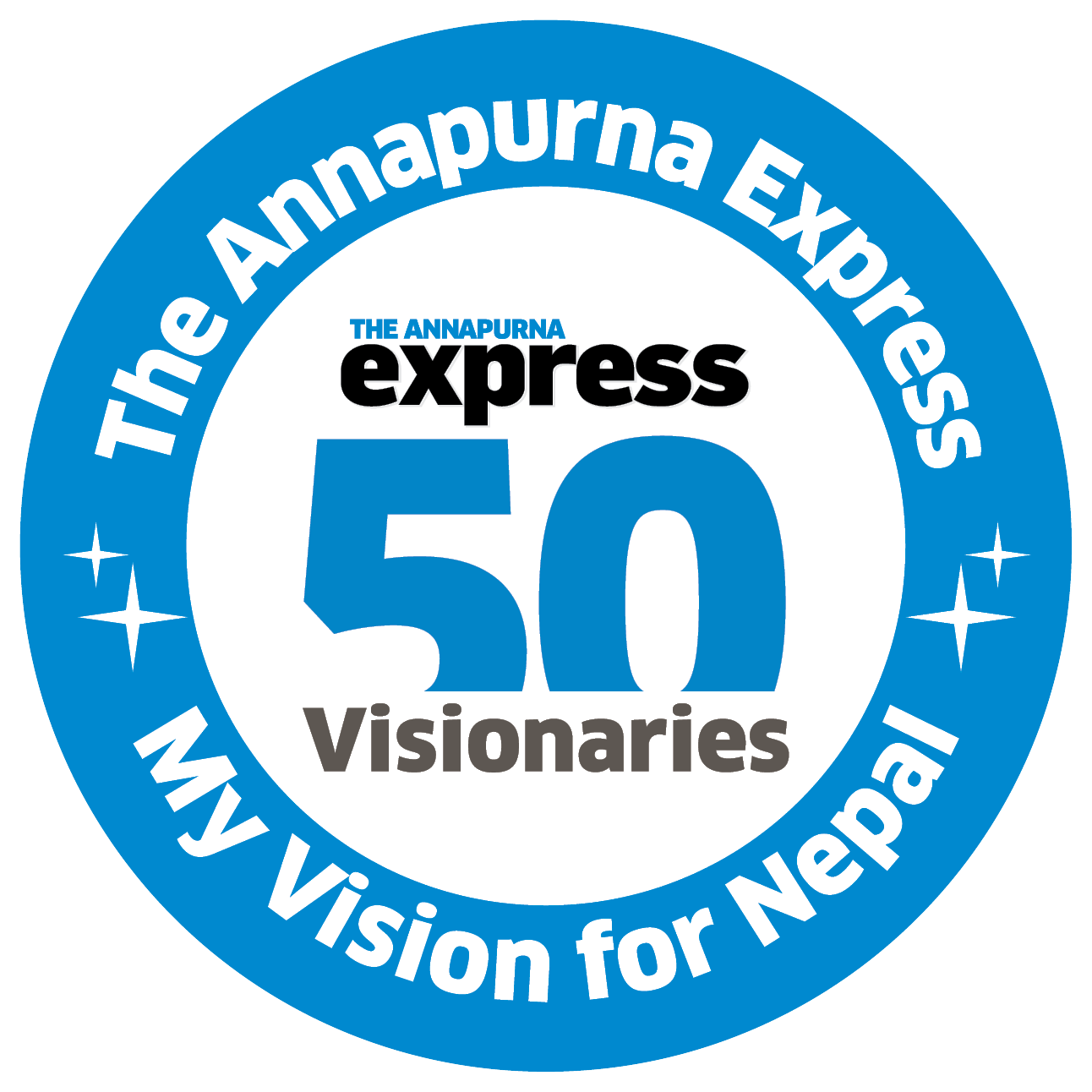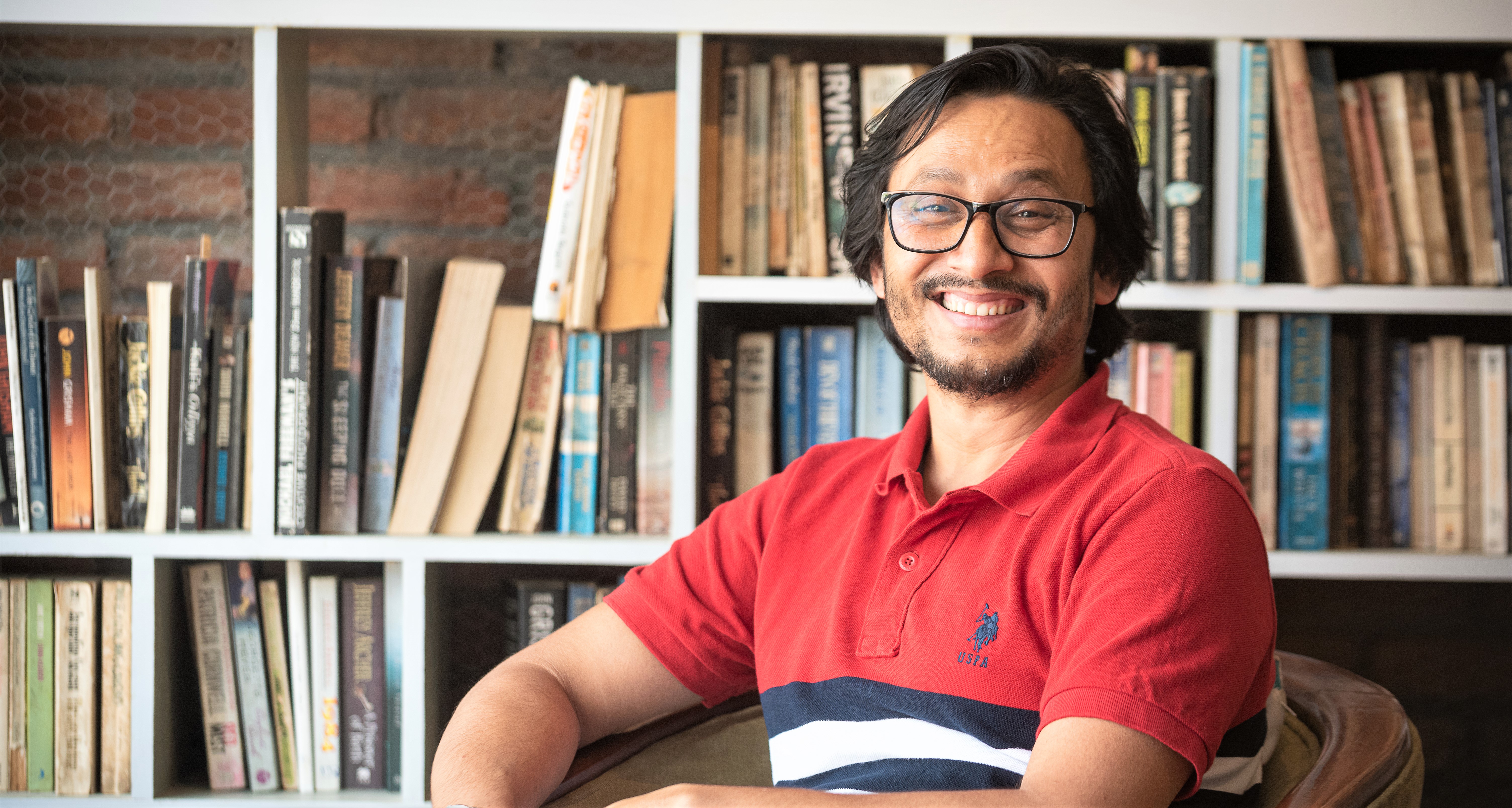Create a casteless and classless society
Three ways to realize the vision:
1) Properly training and orienting children on social ills.
2) Ensuring greater political participation of backward communities.
3) Start working at the grassroots and work your way up.
Having worked as a journalist, storyteller, and filmmaker, I have had the opportunity of traversing the length and breadth of Nepal. My travels have made me realize the urgency with which we need to change the status quo in order to remove the untold suffering of countless people.
It was particularly after my involvement in a TV program called ‘Jaatko Prashna’ that I came across some very harsh realities of our society, particularly in Tarai-Madhes. I have thus shifted my focus to the vulnerable groups whose suffering starts right after their birth.
Before I worked on this program, I knew that our society had entrenched class- and caste-based disparities. I had myself experienced some of these but I never knew things were so bad. I further realized the huge gulf that exists between Kathmandu and the Tarai. We can’t even imagine what many people in Tarai are going through.
Forget basic needs, the Dalits of Tarai are having to live under a constant fear of death. Their men are being murdered and women are being raped. These heinous crimes are happening in front of everyone, and yet no one listens to their cries for help. Police and authorities are in the pockets of the the upper caste folks and often they don’t even file Dalit complaints. The upper caste people are also the ones getting elected to the local government and parliament. Power revolves around the privileged groups so they don’t even think of others. The vulnerable group is trapped in this deadly web.
I often ask myself: Why do some people get all the opportunities just because they are from a certain caste while others die because they are from a different caste? So, I am working to expose this vicious cycle, and ultimately, my vision is to make Nepal a casteless and classless society.
This might sound simple, but it’s not an easy task, and there is a long way to go to realize my vision.
The simplest thing would be to ensure equal participation, representation, access, and opportunity to the Dalits and other backward populations. We can’t determine their needs or their future. They should decide their own fate and for that, they need power, which they can only get from greater political participation.
Also read: Dr. Anup Bastola | Each citizen’s adequate access to healthcare
I used to think that education solves every social problem, but the educated folks are precisely the ones who ill-treat members of the backward communities. So I have come to realize that discrimination is largely about your mindset and beliefs rather than it is about your formal education.
The way a child is raised determines how he or she behaves with people of the so-called lower class and caste. That’s why children need proper orientation and schooling. We should be working on changing people’s mentality early in their life.
It is upon the young generation to internalize the wrongs that are being done to certain communities and to take the initiative to change the society. They have the power, the platform, the authority, as well as the access to lead us out of this endless loop. They should thus be raising their voice in favor of the voiceless. I see many youths demonstrating against social evils, but at the same time there are plenty of other young people who are still passing callous comments on discrimination on their social media pages. And often these comments are toxic—so just because you are young does not make you automatically progressive.
For now, the apex body to determine things is the government, and that is the major place we expect change. But sadly, the government is also controlled by the same classes and castes. They won’t do anything for the marginalized community, ever. Otherwise, my vision would have been realized long ago.
Those in authority say they have been providing ample opportunities for everyone. But the Dalits, indigenous and marginalized communities are in no place to cash in on those opportunities. For many of them just survival is a struggle. So how can they ever think of higher things? They need a guarantee of their life, basic needs, constitutional rights, and motivation to reach a place where they can determine their own fate.
Lastly, every change takes time, and the thing I am talking about could take more time than expected. But that should not prevent us from starting at the bottom and gradually moving up.
Also read: Greta Rana | Establish towns in the mountains
Quick Questions:
1) What personal achievement means the most to you?
I am trying to establish an open platform for the voiceless and vulnerable people. You can also say it is part of my social responsibility.
2) Would you say caste-based discriminations in Nepal are decreasing, say, compared to a decade ago?
People say caste-based discriminations have declined but I don’t think so. Dalits can now enter the houses of so-called higher castes in a few towns. Yet that is setting the bar low. It is only a small part of different forms of discrimination. People are still dying owing to their castes.
3) What is one quote you live by?
‘No matter where life takes you, don’t forget where you came from’.












